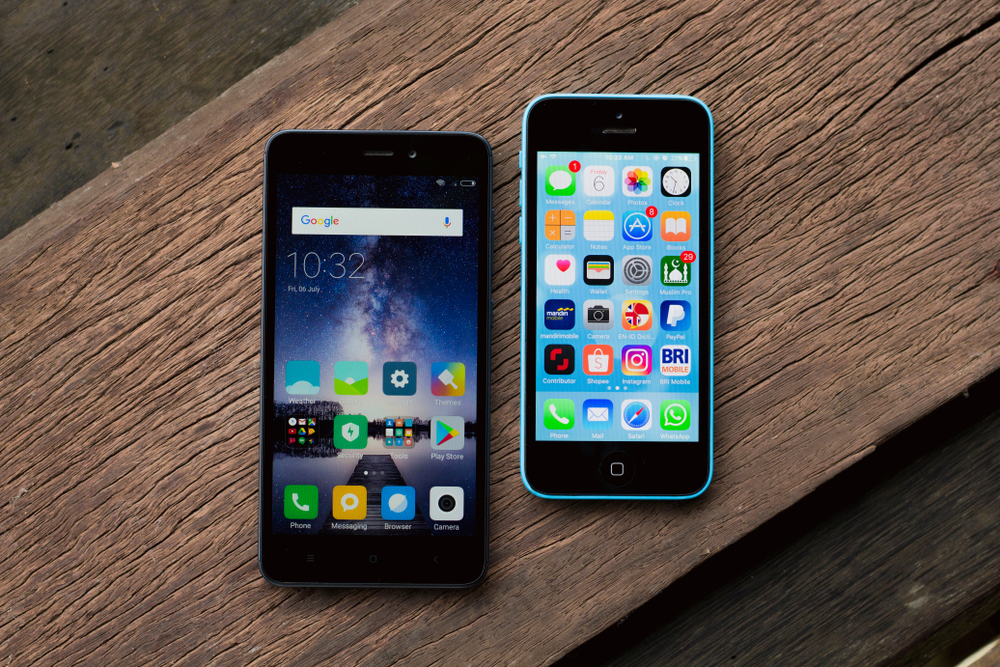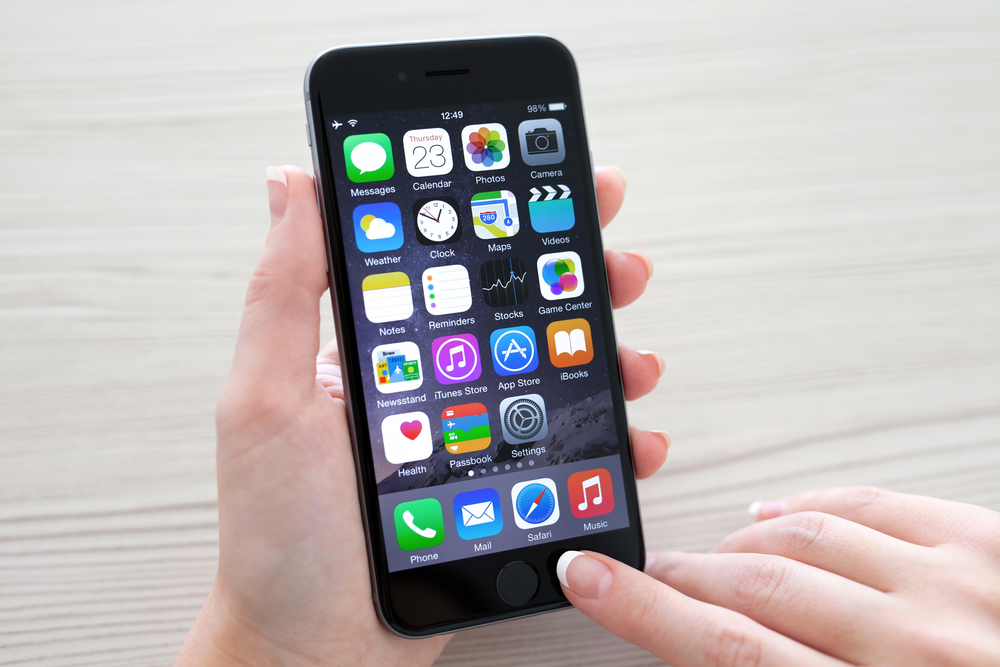
Top Tips & Tricks for Marketing Your Mobile App - Boost Downloads & Drive User Engagement

With over 2.87 million mobile App Store or Google Play app s available for download on the Google Play Store and 1.96 million on the Apple App Store, standing out in the highly competitive app market can be a daunting task. However, with the right marketing strategies, you can enhance your app's visibility, increase downloads, and drive user engagement. In this article, we will discuss the top tips and tricks for marketing your mobile iOS or Android app effectively.
1. Optimize Your App Store ListingFirst impressions matter, and the app store listing is the first encounter users have with your mobile Google Play or App Store app . To optimize your app store listing, focus on creating an attention-grabbing app icon and screenshots that highlight the key features and functionalities of your app. Use compelling descriptions and relevant keywords to improve your app's discoverability within the app stores' search results.
2. Leverage App Store Optimization (ASO) Techniques
App Store Optimization, or ASO, is the process of optimizing your app's keywords, title, description, and other metadata to improve its visibility in app store search results. Conduct thorough keyword research to identify relevant keywords that have high search volume and low competition. Incorporate these keywords naturally into your app's metadata to boost organic traffic and increase downloads.
3. Implement a Strong App Marketing Strategy
A well-defined app marketing strategy is essential for driving user engagement and increasing app downloads. Start by identifying your target audience and understanding their needs and preferences. Leverage various marketing channels such as social media, influencer partnerships, content marketing, and email marketing to promote your app effectively. Tailor your marketing efforts to resonate with your audience and generate interest in your mobile Android or iOS app .
4. Develop a Pre-Launch Marketing Campaign
Building excitement and anticipation before your app's release can significantly impact its downloads once it goes live. Create a dedicated landing page or microsite for your app and use it as a platform to gather user emails and generate pre-launch buzz. Engage with potential users through social media, blog posts, and press releases to create awareness and generate interest in your mobile app . Consider offering early access to influencers and beta testers to gain valuable feedback and generate positive word-of-mouth.
5. Encourage User Reviews and Ratings
Positive user reviews and ratings can significantly influence the download decision-making process. Encourage satisfied users to leave reviews and ratings by implementing in-app prompts and personalized push notifications. Highlight positive reviews on your app's listing and engage with users by responding to their feedback, resolving issues, and incorporating user suggestions. These interactions not only boost user engagement but also demonstrate your commitment to providing an excellent user experience.
6. Leverage Social Media Platforms
Social media platforms provide immense opportunities for reaching a broader audience and promoting your mobile app. Create engaging content, such as app highlights, tutorials, and user testimonials, to share across social media channels. Identify relevant hashtags and join relevant communities to increase your app's exposure. Partner with influencers in your niche to amplify your app's visibility and leverage their followers' trust to drive downloads and user engagement.
7. Implement In-app Referral Programs
Referral programs can be a powerful tool to incentivize existing users to promote your mobile app to their friends and networks. Implement a user-friendly referral system that rewards users for inviting others to download and use the app. Offer attractive incentives such as discounts, exclusive content, or in-app currency to encourage users to actively participate in the referral program. This strategy not only boosts downloads but also builds a stronger user community around your app.
8. Utilize Push Notifications
Push notifications are an effective way to re-engage users, drive conversions, and keep users informed about app updates, new features, and promotions. However, it's important to use push notifications strategically to avoid overwhelming users and risking app uninstalls. Personalize your push notifications based on user behavior and preferences to deliver relevant and timely content. Segment your user base and tailor your messages to ensure maximum impact and engagement.
9. Implement App Analytics
Tracking and analyzing user behavior and app performance is essential for understanding your users' preferences and optimizing your marketing efforts. Implement robust app analytics tools to gather data on user acquisition, retention, engagement, and feature usage. Utilize this data to identify areas of improvement, optimize user flows, and enhance user experience. Regularly monitor key metrics to measure the success of your marketing campaigns and make informed decisions based on data-driven insights.
10. Frequently Update and Improve Your App
App stores favor apps that are regularly updated and optimized for the latest operating systems. Continuously listen to user feedback, conduct regular usability tests, and roll out updates to address bugs and introduce new features. Regular updates not only demonstrate your commitment to providing a quality user experience but also drive user engagement by offering fresh content and improved functionality.
FAQs:
1. How long should my app's description be?There is no fixed rule for the length of your app's description. However, it's crucial to provide a concise and compelling overview of your app's key features and functionality. Focus on highlighting the unique selling points and benefits to attract potential users' attention.
2. Can I use paid advertising to promote my mobile app?
Yes, paid advertising can be an effective strategy to promote your mobile app and drive downloads. Consider running ads on social media platforms, search engines, and relevant app advertising networks to reach your target audience. Ensure your ads are visually appealing and provide a clear call-to-action to encourage users to download your app.
3. How can I encourage app users to rate and review my app?
Encouraging users to rate and review your app can be achieved by implementing in-app prompts and personalized push notifications. Timing is crucial, so consider prompting users to rate and review after they have experienced the app's core functionality or achieved a milestone. Make the process as seamless as possible by including direct links to the app store or providing an in-app rating system.
4. What is the role of influencer marketing in promoting mobile apps?
Influencer marketing involves partnering with social media personalities, bloggers, or industry experts to promote your mobile app to their followers. By leveraging influencers' reach and credibility, you can increase your app's visibility, build trust, and drive user engagement. Look for influencers whose audience aligns with your target demographic to ensure the maximum impact.
5. How often should I send push notifications to app users?
The frequency of push notifications depends on the nature of your app and user preferences. Avoid overwhelming users with excessive notifications, as it may lead to app uninstalls. Instead, personalize your push notifications based on user behavior and preferences. Deliver timely and relevant content to engage users without becoming intrusive.
Other useful resources
- https://www.appguru24.com/android-app-promotion/
- https://en.wikipedia.org/wiki/Google_Play
- https://simple.wikipedia.org/wiki/App_Store_(iOS)